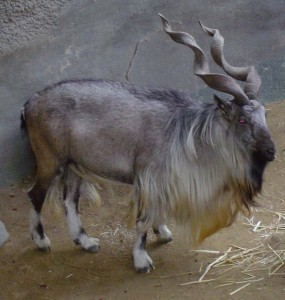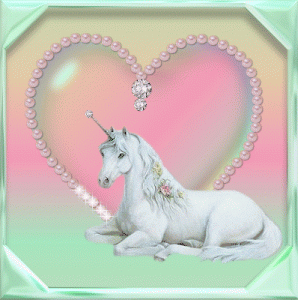My unicorns are different.

pic by Geographer at wikipedia
How's that for a lie?
Because if anything, my unicorns are the most unoriginal you'll ever see. They're my memories of childhood stories – beasts with goat-hooves and tails, a beard, slitted eyes, the twisted horn. In my local library there were books with titles like Mythological Beasts or Fantastic Animals, which I would spend hours reading, and in none of those tomes did the unicorns ever look like gentle ponies with glittering manes and jewelled eyes.
They were goatish and wild. They looked tricky, skittish, too wise and too stupid at the same time.
They scared me.
When I wrote my first Hobverse book, I knew there would be unicorns in it. They'd be huge, shaggy, ill-tempered, in-bred. They'd be as magical as toads. Three-eyed toads, possibly, but toads nonetheless. They'd be beasts of burden, they'd be meat and fur and blood and powdered horn. They'd be that most mundane of all things – currency.
But while I was reading through my galley pages, I got nervous that people would just see the word unicorn and latch onto this:
And I admit, I died a little inside.
But I guess it's cool, in its way. People will take what they take from what I've written, but in my head the Hobverse unicorns will still be what I imagined. It's a good lesson to remember – it doesn't matter if I've described them as goatish and slit-eyed with horns that sweep backward, what matters is that I can only put down the words. I can't make people read them with my personal set of memories and references.
The reader always brings their own interpretation to your work. And that's okay. Not only that, it's good. That way books become conversations, and not lectures.

















